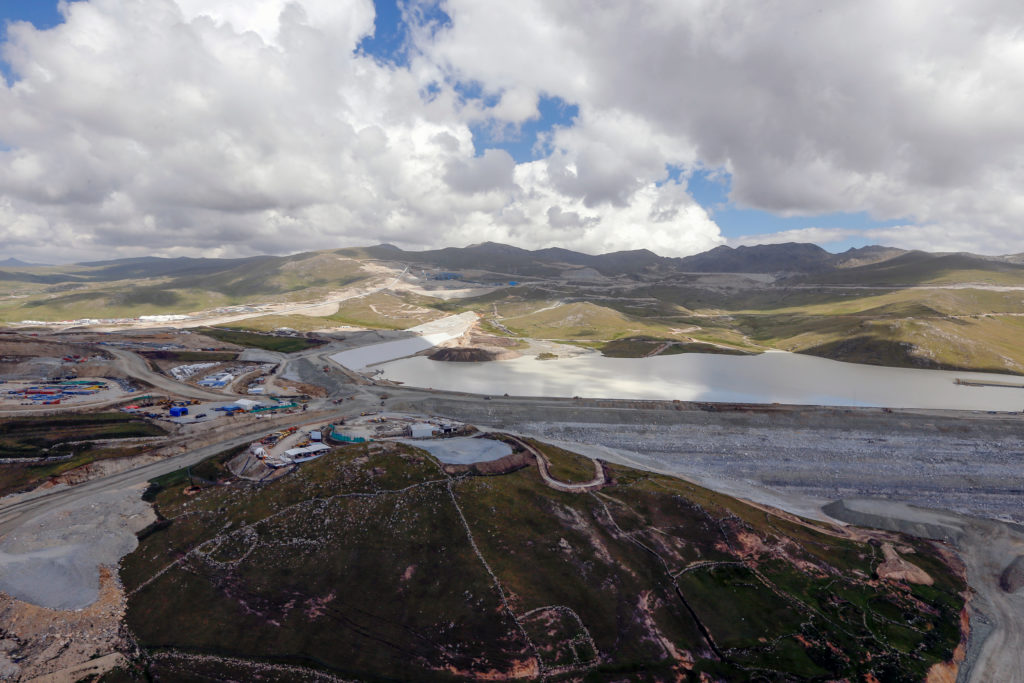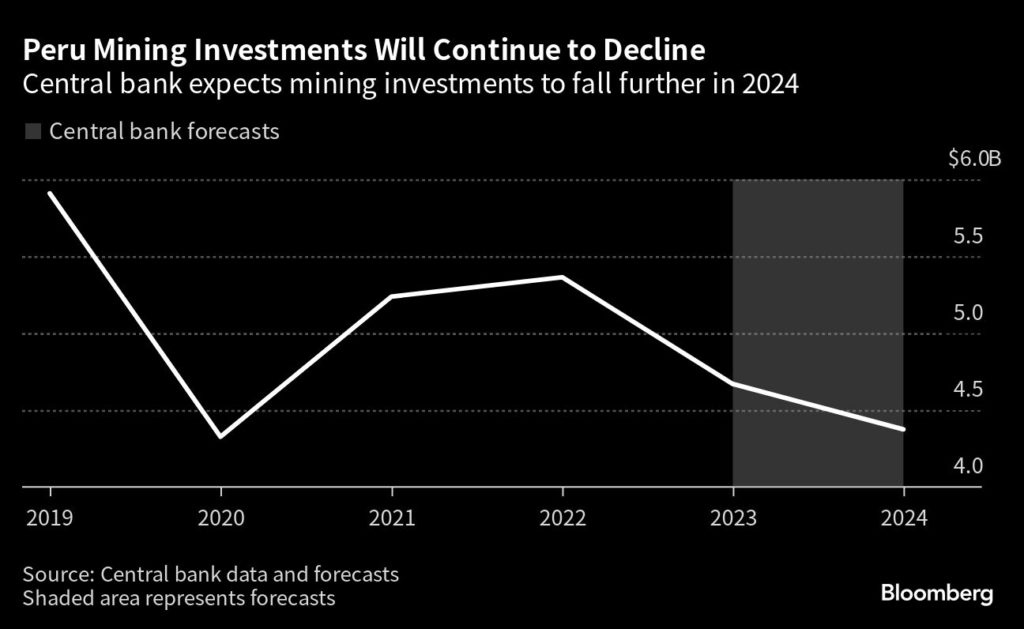Peru is approaching peak copper — for now — as new mines stall

Peruvian copper production probably will rise through next year before flattening out due to a slowdown in investment, according to the head of the country’s mining society.
Output from the world’s biggest copper supplier after Chile this year jumped 20% through July from the same period in 2022 as mines recovered from blockades that choked shipments and as a new Anglo American Plc project ramped up. Annual output is set to come in at 2.6 million tons, up from 2.4 million last year, and reach upwards of 2.8 million in 2024, said Victor Gobitz, who leads the mining society known as SNMPE. His outlook assumes no major weather disruptions or road blocks.
That could be the peak for a while, he noted.
“We’re arriving at a plateau that requires new projects,” Gobitz said during an interview from the Perumin trade show and conference in the southern city of Arequipa on Tuesday.
Peru’s recovery from protests triggered by last year’s ouster of former President Pedro Castillo is helping replenish global stockpiles of the metal at a time when demand in China, the top copper-consuming nation, is weakening. But Peru’s pipeline of new mines is running dry ahead of an expected pickup in demand sparked by the shift away from fossil fuels.
The government is working on pushing through permitting on several major upgrades at existing mines but there’s a dearth of greenfield development. Two clusters of potential new mines in the country’s northern and southern regions could unlock an additional 2 million tons of copper per year, Gobitz said.
But that requires government policy independent of political cycles, streamlined permitting, infrastructure investments and greater development opportunities for communities, he said.

“There’s this great global demand for copper and we have these mature projects — it’s an impressive advantage,” he said. “If we were able to generate the political, social and economic impulse, we could reach Chilean levels in a decade.”
Peru sends about 80% of its copper to China. While there’s been a cooling in Chinese demand of late, that’s been priced in, Gobitz said. He sees prices that are now roughly $3.65 a pound moving back above $4 on global urbanization and electrification, as well as economic growth in India and other parts of Asia.
(By James Attwood)
More News
{{ commodity.name }}
{{ post.title }}
{{ post.date }}




Comments